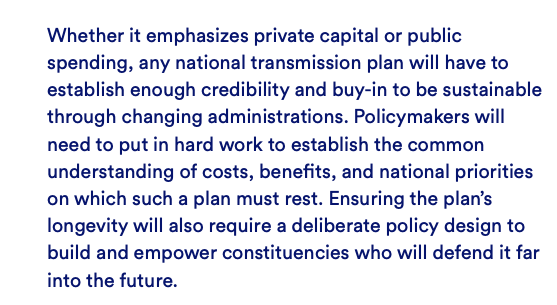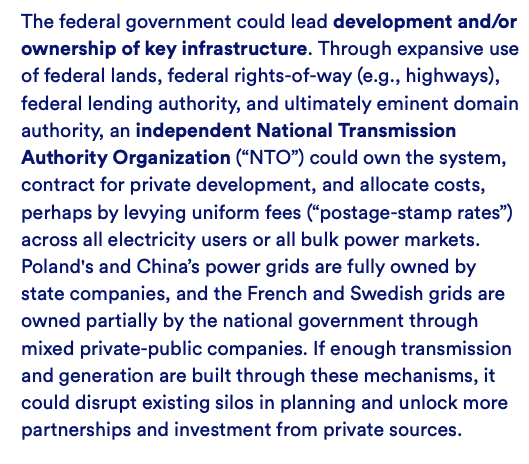
NEW REPORT w/ @cleanaircatf: To manage climate change, the U.S. must double or triple the size of its electric transmission system - and the current piecemeal approach isn’t going to cut it.
We’ve got 2 proposals to scale transmission rapidly: niskanencenter.org/report-how-are…
We’ve got 2 proposals to scale transmission rapidly: niskanencenter.org/report-how-are…
To make progress, the U.S. must address the tension between private and public interest. It will also need to find inclusive ways to plan and develop transmission in the national interest that gets buy-in by ensuring broad enough benefits as well as compensation for burdens. 

#Transmission building today is a fragmented “3 P” system:
✔️Permitting
✔️Planning
✔️Paying
This is scattered over dozens of federal / state / local authorities. The result? A lengthy process subject to multiple vetoes.
✔️Permitting
✔️Planning
✔️Paying
This is scattered over dozens of federal / state / local authorities. The result? A lengthy process subject to multiple vetoes.
Our current approach to transmission yields the siting of only a few new significant lines per decade...when we need to double capacity in less than thirty years. 

We propose a “5P” framework for expanding #transmission - adding inclusive stakeholder participation and a clear process to the traditional 3Ps. This will more effectively address the tensions between public and private interests. 

So what would it mean to abandon our piecemeal approach to transmission and build a new system that scales transmission rapidly? We have 2 proposals: one that puts more weight on the public sector and one that puts more weight on the private sector.
Proposal 1 (the public-weighted model): Creating a National Transmission Organization that would create and continually update a national transmission plan with state and other stakeholder participation, with funding and permitting authority. 

Proposal 2 (the private-weighted model): A more coordinated system of privately executed transmission development within an inclusive national planning framework that lays out broad corridors for development, minimum standards for public participation, etc. 

These models are not strict opposites. Elements of the two models could be combined in novel formulations. But outlining two types helps clarify the choices and tradeoffs we face. 

Electricity transmission development has been languishing for years without significant policy changes.
We need to reimagine the system and policies around building transmission. And we need to get the job done in a few decades.
Full report here: niskanencenter.org/report-how-are…
We need to reimagine the system and policies around building transmission. And we need to get the job done in a few decades.
Full report here: niskanencenter.org/report-how-are…
• • •
Missing some Tweet in this thread? You can try to
force a refresh








